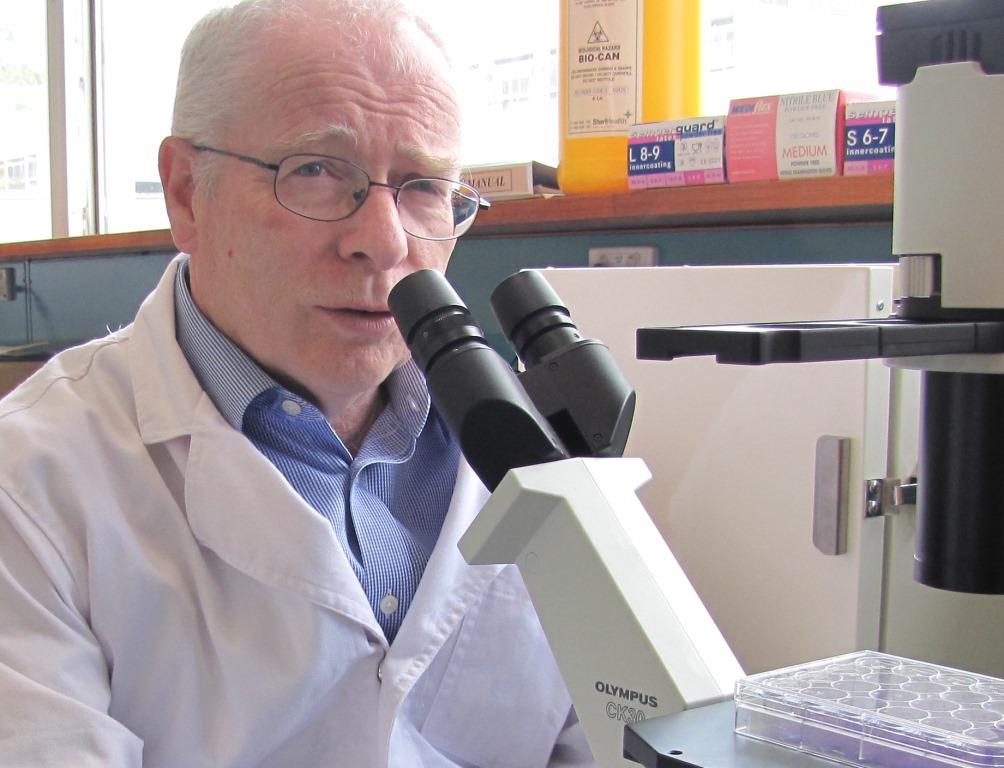
New research at Flinders is looking at how bacteriophages – viruses that infect and kill bacteria – could be used to treat diabetes-related foot ulcers.
The research, and an insulin-related project led by Associate Professor Briony Forbes at the Flinders School of Medicine, are two of five South Australian 2017 research grants from Diabetes Australia.
Associate Professor Greg Johnson, CEO of Diabetes Australia, said the organisation was committed to funding research that helped to improve the lives of people with diabetes and the Australian health system.
He pointed to the work of Associate Professor Peter Speck and his team at Flinders University as an example of how research can transform the lives of families across Australia.
“There are more than 4,400 amputations every year in Australia as a result of diabetes and many of those amputations begin with small sores or ulcers,” Associate Professor Johnson said.
“Associate Professor Speck’s research into bacteriophages to treat diabetes-related foot ulcers is a new frontier in reducing the impact of diabetes-related amputations.
“Many of the bacteria that infect diabetes-related foot ulcers, including staphylococcus aureus, are resistant to antibiotics so there is hope that bacteriophages – viruses that infect and kill bacteria – could provide a more effective alternative to antibiotics.”
The grants would support research across a range of subjects encompassing all types of diabetes.
“Diabetes is the single biggest challenge confronting Australia’s health system and research into how we can prevent and manage the condition is critical to meeting the challenges we face,” Associate Professor Johnson says
Associate Professor Briony Forbes, who is Head of Medical Biochemistry at the School of Medicine at Flinders, will be conducting studies to understand the molecular detail of how insulin binds to cells with the aim to improve insulin’s effectiveness in treating diabetes.
She will be assisted by several laboratory members including Carly Sawtell.
Flinders PhD candidate Legesse Kifelew, who is a qualified veterinarian from Ethiopia, and honours student Emily Drum, are supporting Associate Professor Speck’s research project.
The latest projects are:
- Dr Peter Speck (Flinders) Preclinical development of bacteriophages: a better way to treat diabetic foot infections.
- Dr Briony Forbes (Flinders) Defining how insulin engages its receptor
- Dr Joanne Tan (South Australian Health and Medical Research Institute) Micromanaging high density liproprotein-induced rescue of diabetes impaired angiogenesis.
- Dr Liza Phillips (University of Adelaide) The impact of pancreatic exocrine insufficiency and pancreatic enzyme replacement therapy on gastric emptying, gut hormone, and glycaemic responses to a meal in type 2 diabetes
- Dr Tongzhi Wu (University of Adelaide) Gastrointestinal mechanism of the anti-diabetic effect of metformin.
The Diabetes Australia Research Program was established in 1987 to support and develop diabetes related research across Australia. The program provides funding towards the prevention, management and cure of all types of diabetes, as well as enabling and fostering young and upcoming researchers in the field of diabetes research. Each year outstanding research projects are selected through a merit based, competitive, peer review process.

